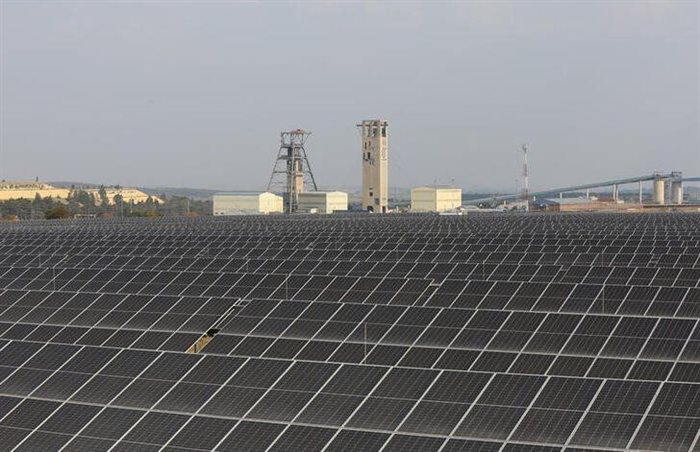
Mining companies in South Africa face an uphill struggle to deliver on emissions reduction targets as the electricity they source from the national grid is 80% coal-generated. Electricity accounts for 93% of South Deep's carbon emissions and 10% of its annual costs.
Investing in renewables helps miners cut emissions and save money on power, as Eskom seeks to hike power tariffs by 32% next April.
Gold Fields spent around R715m on the vast field of solar panels near South Deep. It is expected to save the mine R124m a year and reduce its annual carbon emissions by 110,000 tonnes.
The solar plant will generate 103 gigawatt hours (GWh) of electricity a year, about a quarter of the mine's annual power usage, and a Gold Fields executive said the mine has contacted Eskom about selling surplus power back into the grid.
"If there's enough people doing 50 and 100 megawatt plants around the country, you can add five gigawatts of power into the system and there's less load shedding," said Martin Preece, Gold Fields' executive vice president for South Africa.
"We want to be part of the solution, not part of the problem," said Preece who, like a rising number of South Africans, avoids blackouts at home thanks to solar power.
South Deep is also eyeing wind power, having started the environmental permitting process for a wind farm.
The solar plant should hit its generation peak of 50 megawatts within the next six weeks, Preece said. The start of the summer rains will help, washing off a layer of orange dust the panels have collected over a long dry winter.

Reuters, the news and media division of Thomson Reuters, is the world's largest multimedia news provider, reaching billions of people worldwide every day.
Go to: https://www.reuters.com/